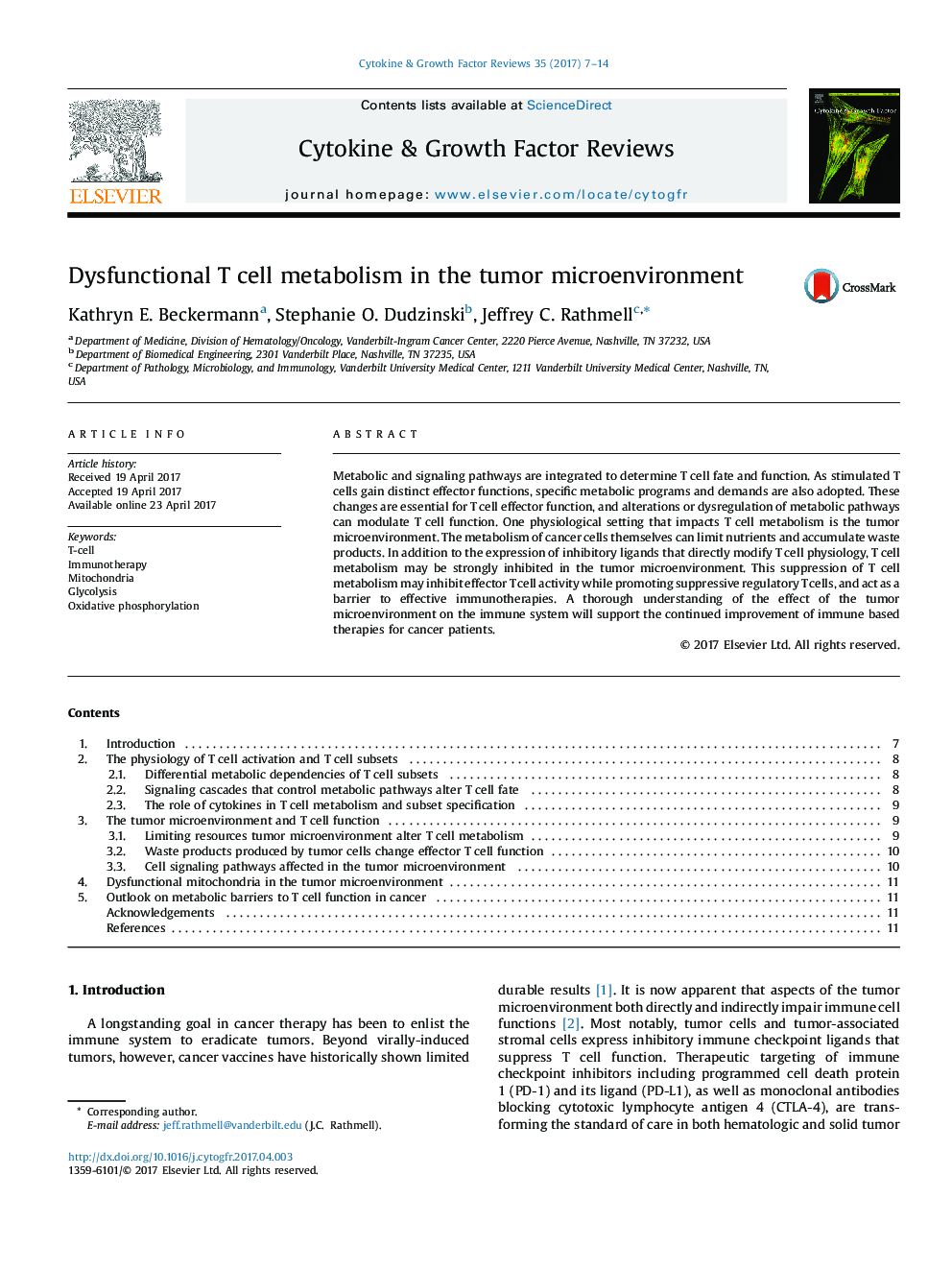| کد مقاله | کد نشریه | سال انتشار | مقاله انگلیسی | نسخه تمام متن |
|---|---|---|---|---|
| 5531226 | 1549489 | 2017 | 8 صفحه PDF | دانلود رایگان |

- T cell fates are driven by cytokines and coordinate metabolic pathways.
- The tumor microenvironment is inhospitable for infiltrating lymphocytes by limiting nutrient resources and excretion of inhibitory signals.
- Current work is seeking to modify T cell signaling and metabolic pathways to work in synergy with current cancer immune checkpoint inhibitor therapy.
Metabolic and signaling pathways are integrated to determine T cell fate and function. As stimulated T cells gain distinct effector functions, specific metabolic programs and demands are also adopted. These changes are essential for T cell effector function, and alterations or dysregulation of metabolic pathways can modulate T cell function. One physiological setting that impacts T cell metabolism is the tumor microenvironment. The metabolism of cancer cells themselves can limit nutrients and accumulate waste products. In addition to the expression of inhibitory ligands that directly modify T cell physiology, T cell metabolism may be strongly inhibited in the tumor microenvironment. This suppression of T cell metabolism may inhibit effector T cell activity while promoting suppressive regulatory T cells, and act as a barrier to effective immunotherapies. A thorough understanding of the effect of the tumor microenvironment on the immune system will support the continued improvement of immune based therapies for cancer patients.
110
Journal: Cytokine & Growth Factor Reviews - Volume 35, June 2017, Pages 7-14